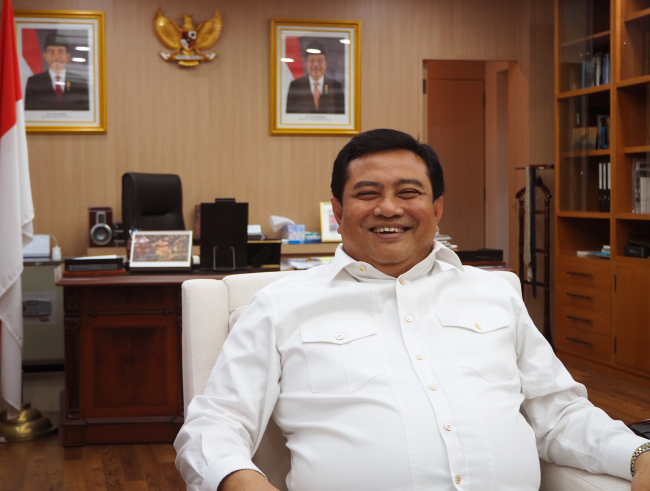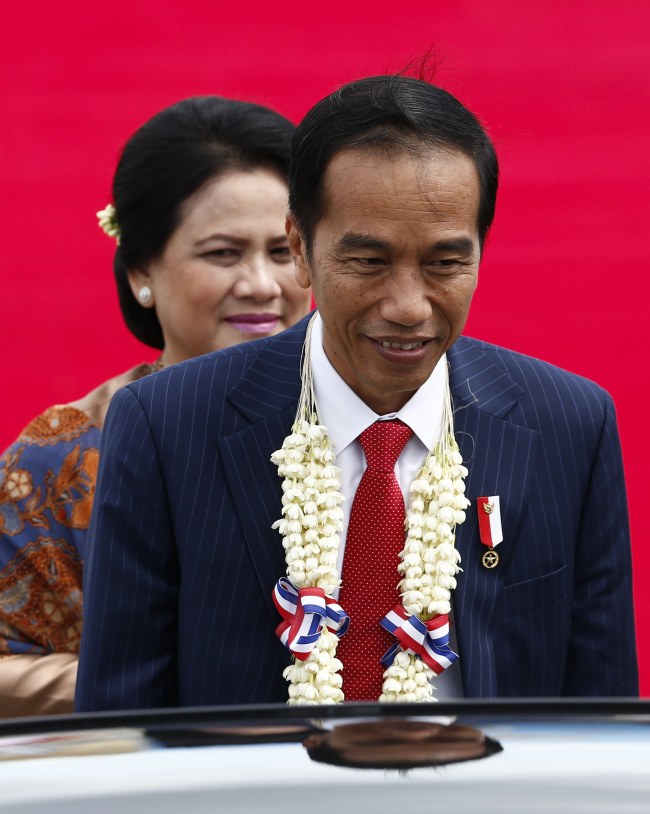Indonesia, by virtue of its geography as a vast nation of 17,000 islands, couldn’t isolate itself from waves of Islamic influence that started arriving on its shores largely since the late 13th century.
Islam was first introduced by Arab traders, then by Islamic scholars and their missionary activities. It was later adopted by local rulers and converts, and acted as a rallying call against foreign occupiers during the late colonial period.
Religion, much like everything else in the heterogeneous archipelago nation, feeds a complex loop of Indonesia’s modern, labyrinthine society. Indonesia has the world’s largest Sunni Muslim population of 230 million people -- comprising over 87 percent of the national population -- but the country remains a secular state constitutionally.
“Because our national territory is made of open islands, it was hard to keep outside influences from penetrating our local cultures. There is no single dominant culture or religion in Indonesia. Everything is a mix of different elements,” said Indonesian Ambassador to Korea Umar Hadi in an interview.
He added that there are different religions practiced dominantly in different areas across Indonesia, with Hindus in Bali, Christians in North Sulawesi and Catholics in Flores Island, among others. Confucianism, introduced from Chinese merchants since the third century, is a religion in Indonesia, unlike across East Asian societies where it has largely remained a cultural force.
 |
Indonesian Ambassador to Korea Umar Hadi (Joel Lee/The Korea Herald) |
The Indonesian Ministry of Religious Affairs recognizes six religions -- Islam, Protestantism, Roman Catholicism, Hinduism, Buddhism and Confucianism -- with deputy ministers representing each religion.
“Indonesia is fortunate, because by nature we had to be an open country,” Hadi stressed, adding in the future, “With all the advances in technology, transport and information, you won’t be able to isolate yourself.”
“It’s inevitable,” he argued. “Closing your doors will not be helpful for your own development.”
Hadi said the state or government is “sometimes ill-equipped to determine the course of history.” The forces of migration and integration happen naturally for different reasons, “whatever policies are in place,” said the diplomat.
Indonesia’s founding ideology is “Pancasila,” which is embedded in the constitution as a secular principle and forms the basis of all national regulations and societal codes. Belief in God comprises one of Pancasila’s five pillars, the others being humanity, the unity of Indonesia within diversity, democracy based on consensus through deliberation, and social justice.
Islam was a unifying force in the context of Indonesia’ creation as a modern state, the envoy explained, noting the many different cultures, languages and traditions had to be united in accordance with Pancasila.
 |
Indonesian President Joko “Jokowi” Widodo (EPA) |
Atheism is not constitutionally banned in Indonesia, but there have been cases in which atheists were charged with blasphemy for publicly expressing their views.
Politicized forms of conservative Islam have surfaced in Indonesia similar to other Southeast Asian countries.
The government, prioritizing democracy and national unity within diversity, has sought to tamp down radical Islam, as some extremist organizations were inspired by the Islamic State terrorist group.
President Joko “Jokowi” Widodo and his administration have repeatedly warned against the creeping influence of Islamic extremism in student campuses, viewing it as a threat to the country’s founding secular ideology. Jokowi has conducted a national speaking tour across Islamic boarding schools and emphasized the importance of Indonesia’s diversity within national unity. He also told a national conference of university rectors that it was necessary to give a larger representation of the country’s secular ideology in education.
The ambassador said a moderate version of Islam -- preaching peace, tolerance and harmony -- should be encouraged. “Islam as a religion is not meant to burden people’s lives. It strives to be a blessing. That’s the beauty of Islam,” he asserted.
On the question of Korea’s cultural and religious diversity in the coming multicultural society, the country should adopt policies ensuring democracy at the grassroots level, he advised. “At the end there is no alternative to democracy. Consensus through deliberation in democracy is even better, because it forces you to listen to even the smallest voices in society.”
Regular dialogue between cultures and religions is helpful, he added, noting younger generations are generally more open to outside cultures.
By Joel Lee (
joel@heraldcorp.com)









